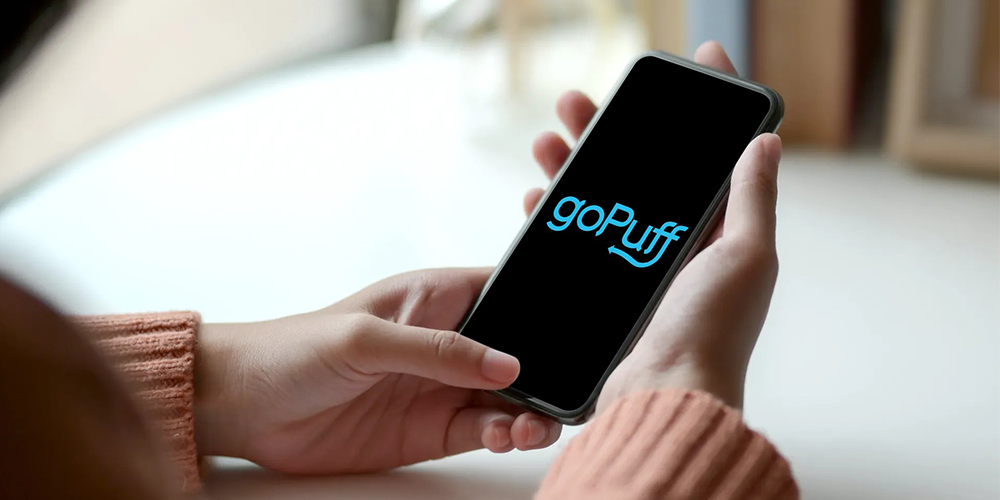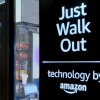Unless you’re in college and/or a Millennial and/or a venture capital watcher, goPuff might not be on your radar.
The app that delivers products you’d find at a convenience store – think snacks, beer, candy, toiletries – hasn’t become a widely used verb like Uber or Venmo. But its “vertically integrated” business model, backed with an impressive venture capital haul, could be driving it toward household-name status.
If ever there were a time for an app offering “daily essentials delivered in minutes,” 2020 is it. With its promise to deliver within 30 minutes, 24/7 in most markets, and with a flat fee, sales are surging.
Also surging: Venture capital. Last week goPuff announced it had raised $380 million in its latest round of funding, tallying up a total of $1.35 billion in sweet VC dollars and leading to a valuation of $3.9 billion. Participants in the latest funding round include existing investor Accel and new investor D1 Capital Partners, with participation from Luxor Capital and SoftBank Vision Fund.
Not bad for a company that started in 2013 with two guys delivering beer and snacks out of a Plymouth Voyager to fellow students at Drexel University.
Co-founders Yakir Gola and Rafael Ilishayev also serve as co-CEOs of the Philadelphia-based company, which now serves more than 500 cities using its own 200-plus “micro-fulfillment” hubs and a fleet of independent delivery drivers. It’s the hubs where the vertical integration comes in.
GoPuff buys products directly from manufacturers and stocks their own warehouses, where delivery drivers pick up the orders. Buying direct means quicker pick up and delivery (no shopping or waiting in grocery store lines for drivers), control over inventory (no relying on local retailers’ stock, so customers get exactly what they want) and, of course, more profit for the company.
The backbone of it all is a logistics platform that optimizes everything from inventory to delivery routes. That model led CNBC.com to name goPuff one of their 2020 CNBC Disruptors, 50 private companies “poised to emerge from the pandemic as the next generation of billion-dollar businesses.”
How it works
Say it’s midnight and you realize you’re out of White Claw just as a sudden craving arises for Flamin’ Hot Cheetos and Ben & Jerry’s Strawberry Cheesecake ice cream (hey, no judgment). Maybe you also need some new earbuds and, because you’re planning ahead, something for your inevitable morning headache. However, driving to the local convenience store isn’t convenient or… advisable.
GoPuff is there for you. Shop through the app (for iOS and Android) and for a flat delivery charge of $1.95 – plus $2 if alcohol is involved – a driver will pick up your order at a goPuff warehouse and drop off your goodies within 30 minutes.
Wondering what their top pandemic-summer sellers are nationwide? That would be Ben & Jerry’s Strawberry Cheesecake ice cream and the White Claw Seltzer Variety 12-pack.
Rapid expansion
GoPuff says the new funding will help it expand markets, products – including a greater selection of baby and pet products – as well as hiring.
The influx of money has juiced hiring from drivers and warehouse staff to execs, including some top talent with backgrounds at big-name companies: Jocelyn Wong (Lowe’s) as its first chief customer officer; Jonathan DiOrio (Uber) as its first chief business officer; and Rekha Singh (TripAdvisor) as VP of engineering.
In May, CNN.com listed goPuff as a company hiring rapidly during the pandemic, likely adding the company to the radar for job seekers and consumers alike.
Lisa Wyatt Roe is an Austin writer and editor whose work has been featured on CNN.com/Travel, in Texas Parks & Wildlife Magazine and in the book “Seduced by Sound: Austin; 100 Musicians on Why They Make Music.” Travel and live music feed her soul. Volunteering with refugees feeds her sense of purpose. And making friends laugh feeds her deep (yet possibly sad) need to get all the laughing emojis on Facebook.










































